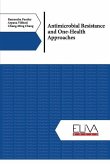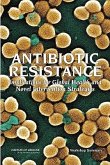Antimicrobial resistance (AMR) surveillance plays an important role in the early detection of resistant strains of pathogens and is of public health importance--requiring prompt response to outbreaks in hospitals and the community. Surveillance findings are needed to inform medical practice, antibiotic stewardship, and policy and interventions to combat AMR. Appropriate use of antimicrobials, informed by surveillance, improves patients' treatment outcomes and reduces the emergence and spread of AMR. This protocol describes the steps and procedures to establish/enhance AMR surveillance in Latin America and the Caribbean. It provides technical guidance to integrate patient, laboratory, and epidemiological data to monitor AMR emergence, trends, and effects in the population. It also provides the necessary elements to move from aggregated data to isolate-level data surveillance starting with blood isolates. It facilitates uniform data collection processes, methods, and tools to ensure data comparability within the Region of the Americas. Finally, it builds on over a decade of experience of the regional AMR surveillance network--ReLAVRA by its Spanish acronym--and its procedures are aligned with the Global Antimicrobial Resistance Surveillance System (GLASS) methodology, enabling countries to participate in the global GLASS AMR surveillance.
Hinweis: Dieser Artikel kann nur an eine deutsche Lieferadresse ausgeliefert werden.
Hinweis: Dieser Artikel kann nur an eine deutsche Lieferadresse ausgeliefert werden.








